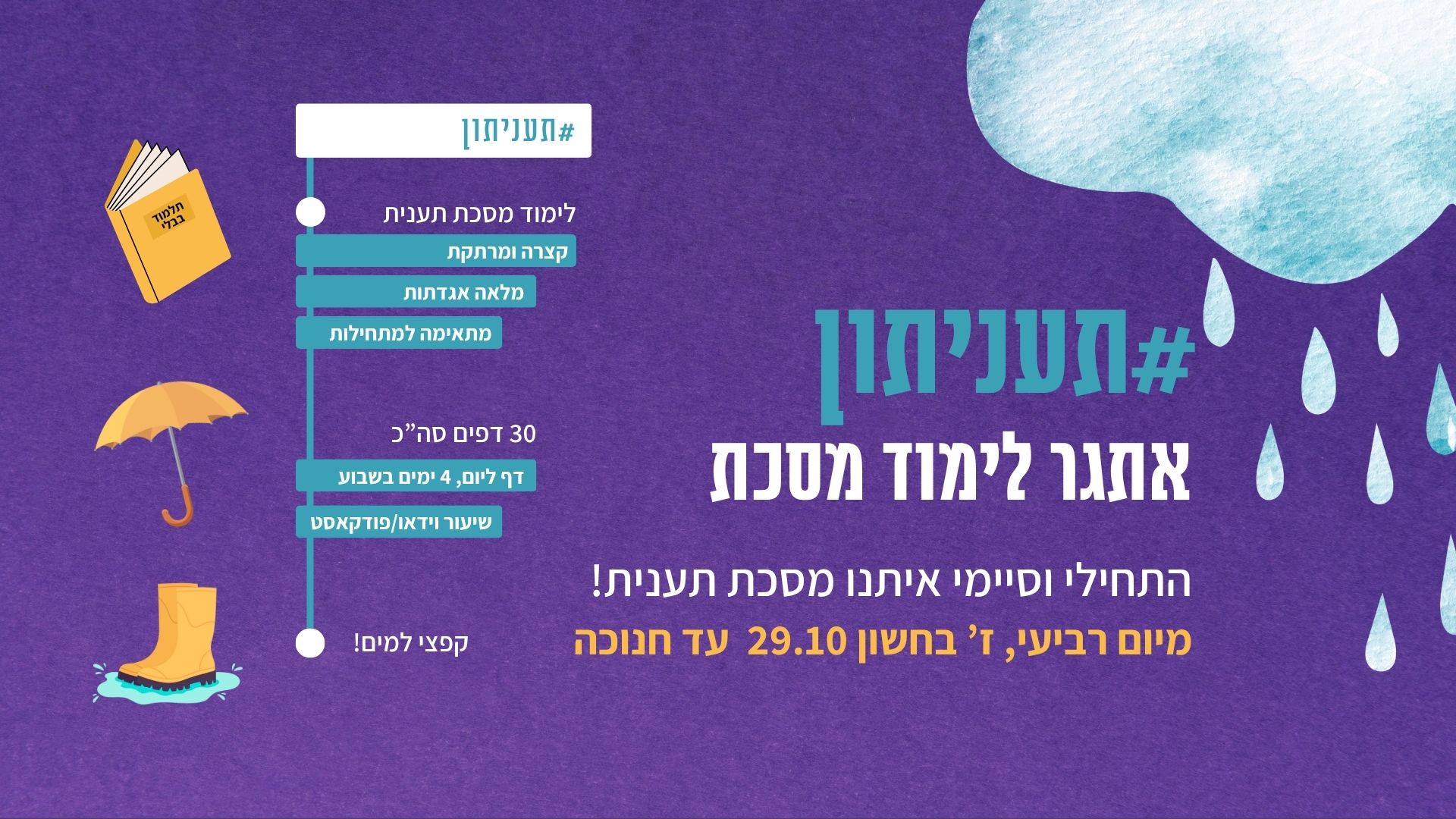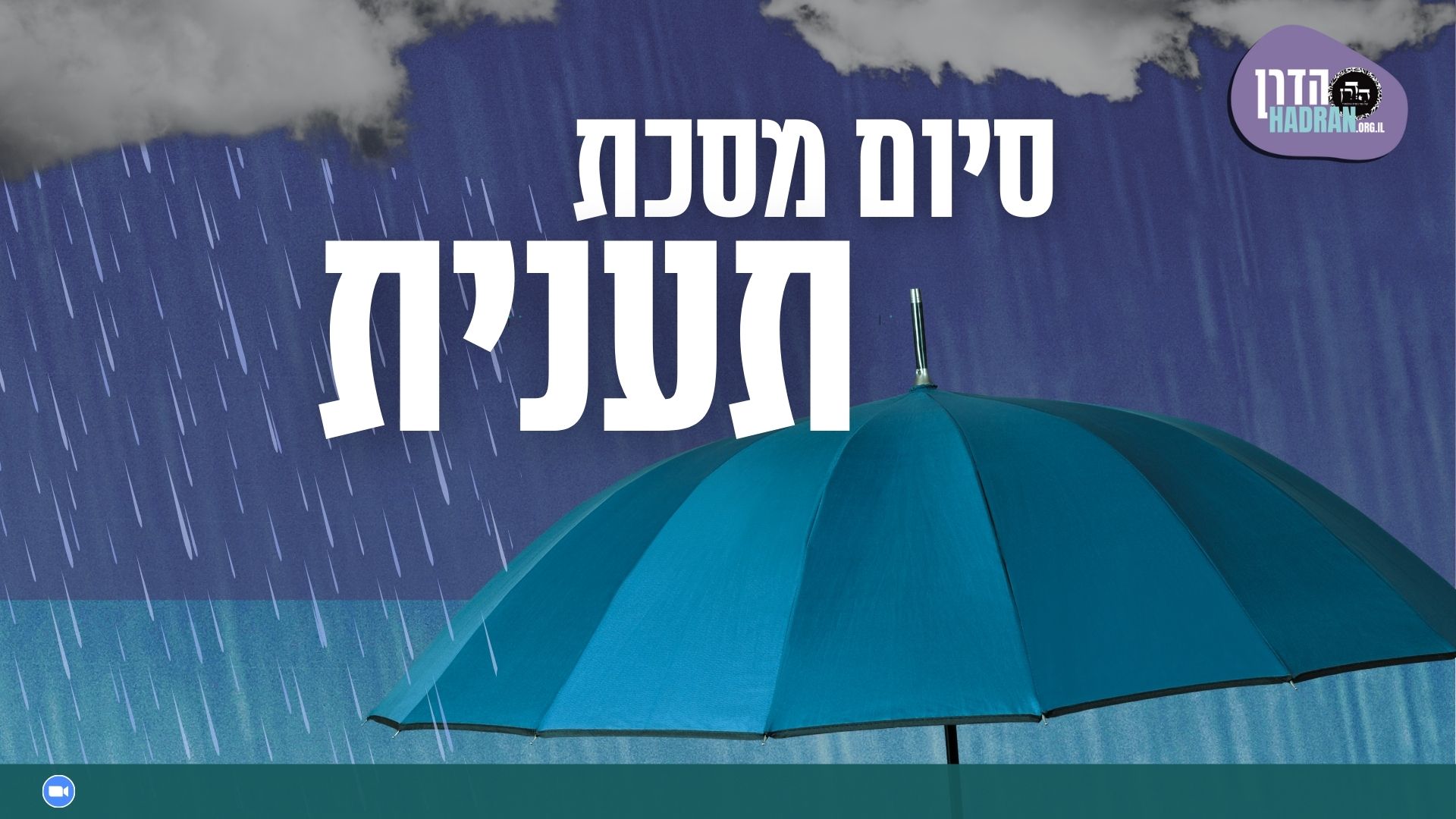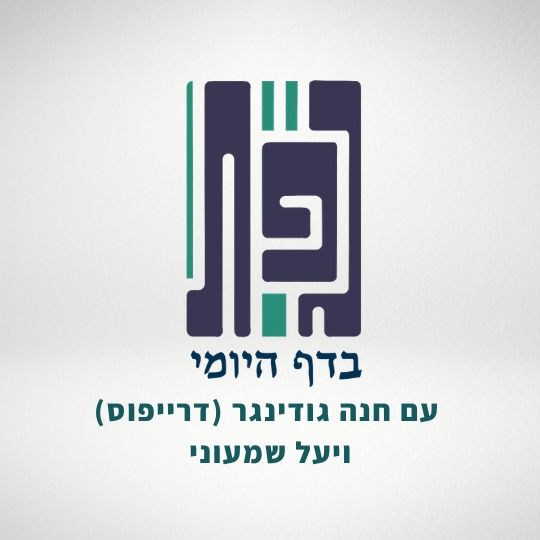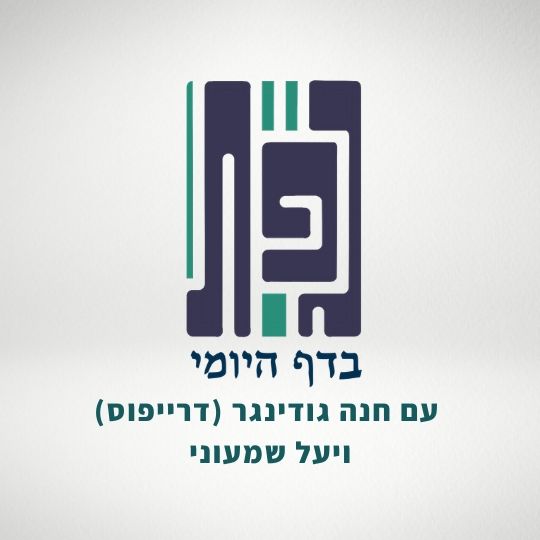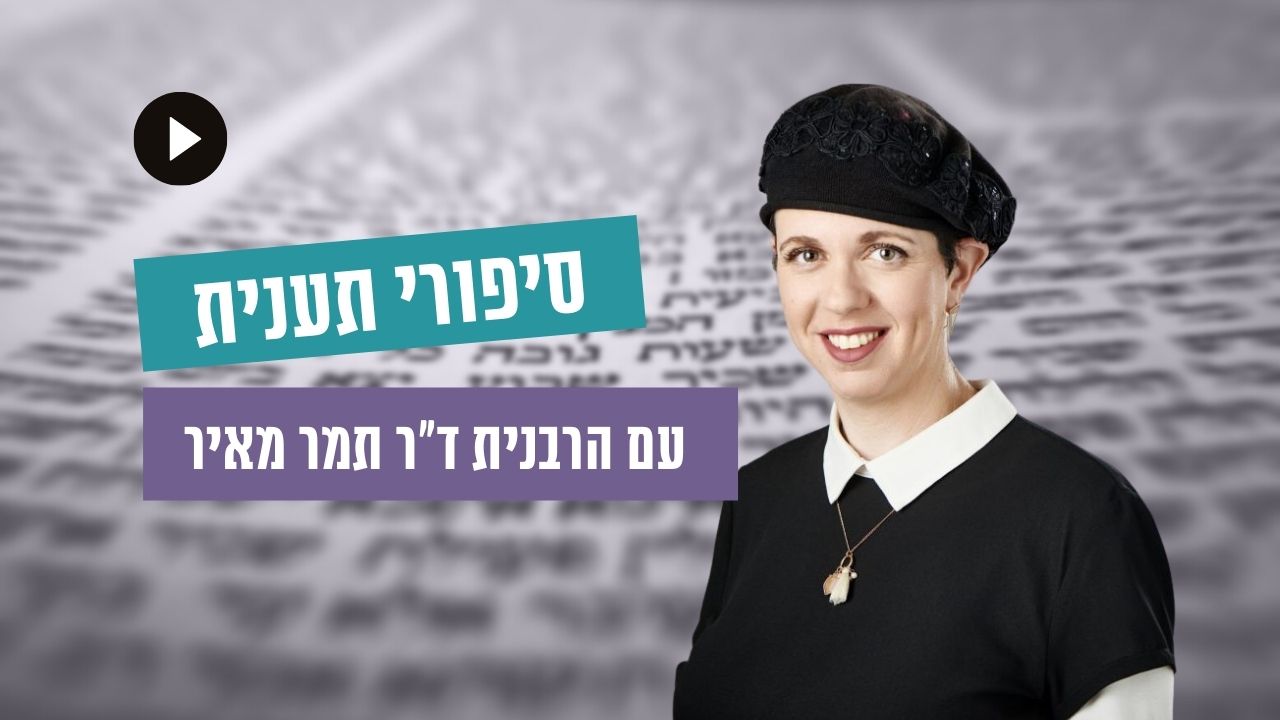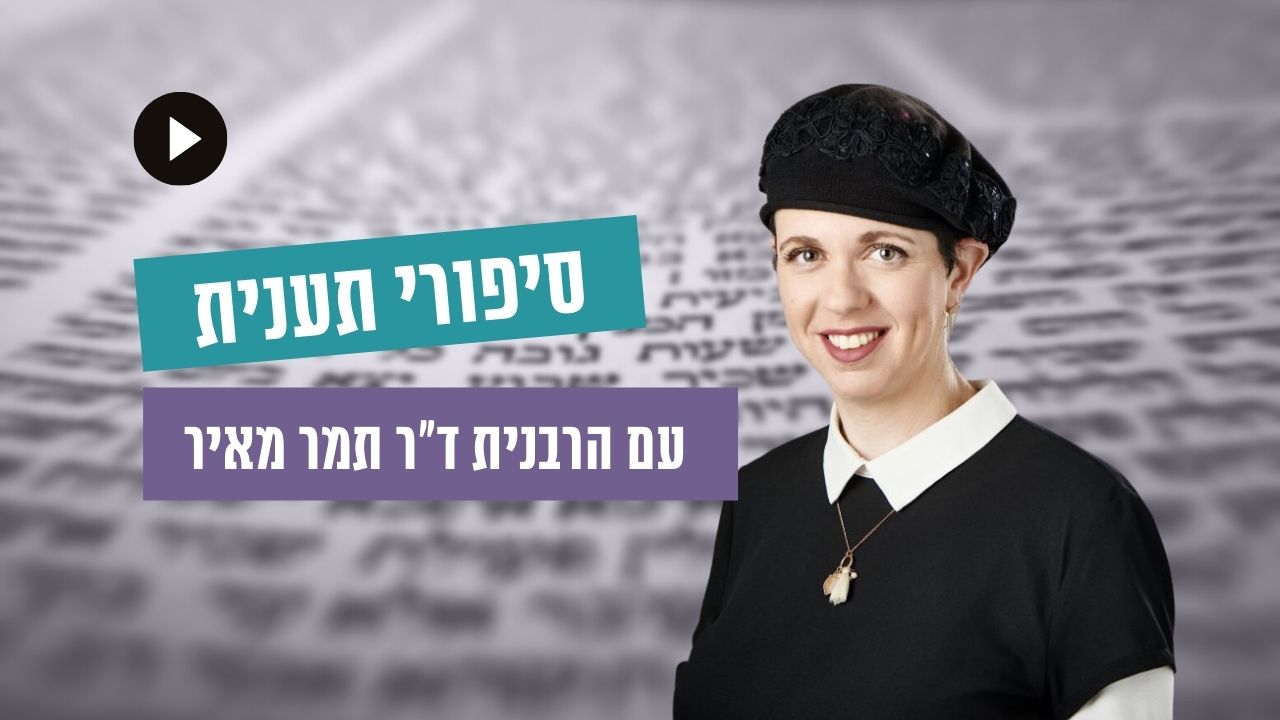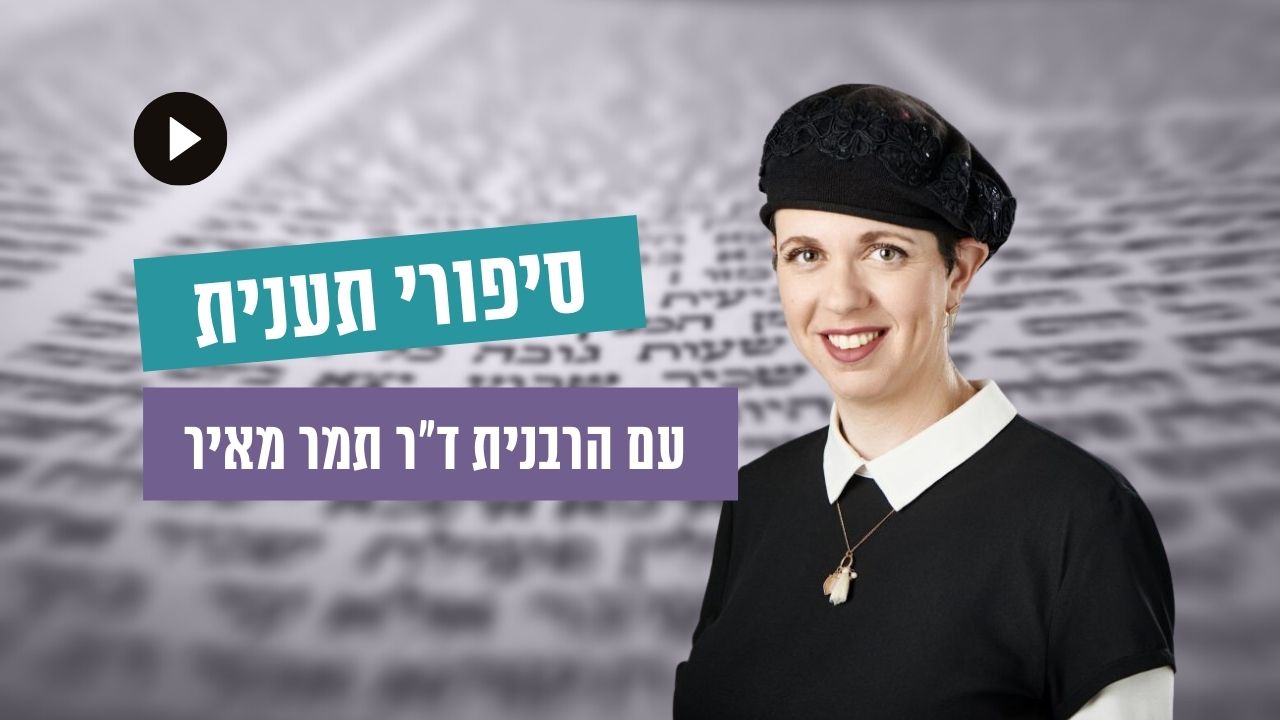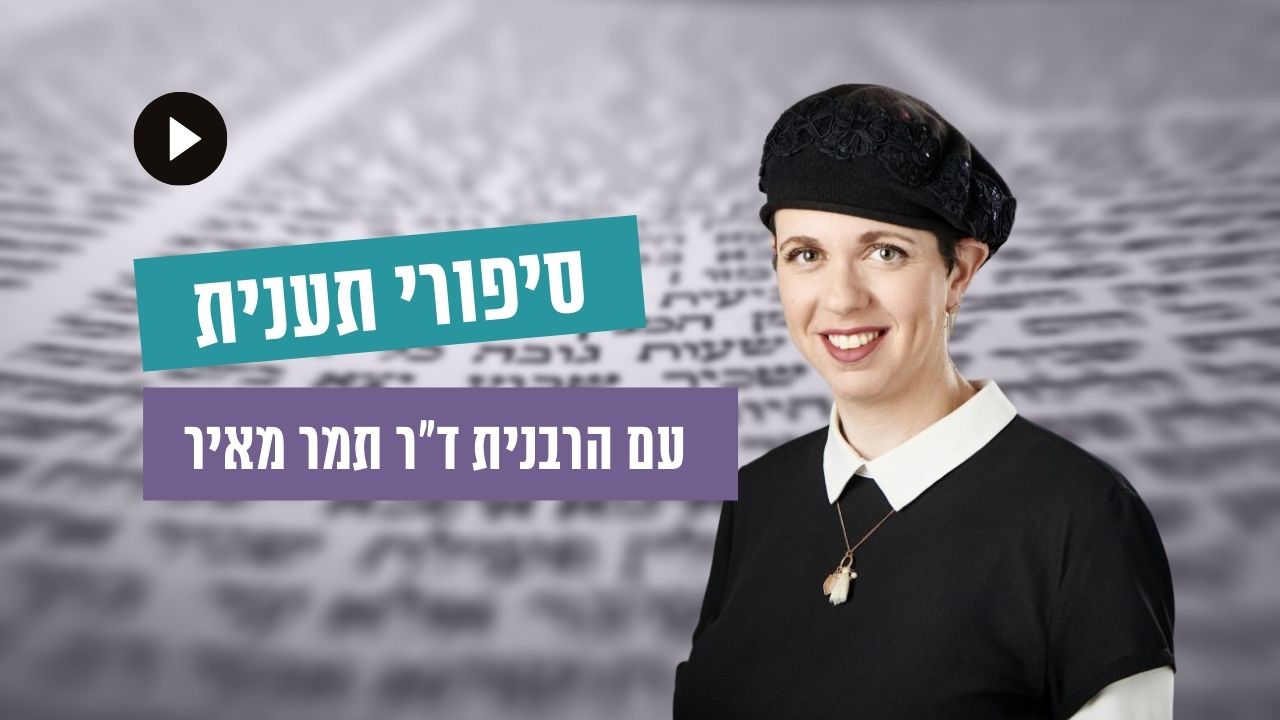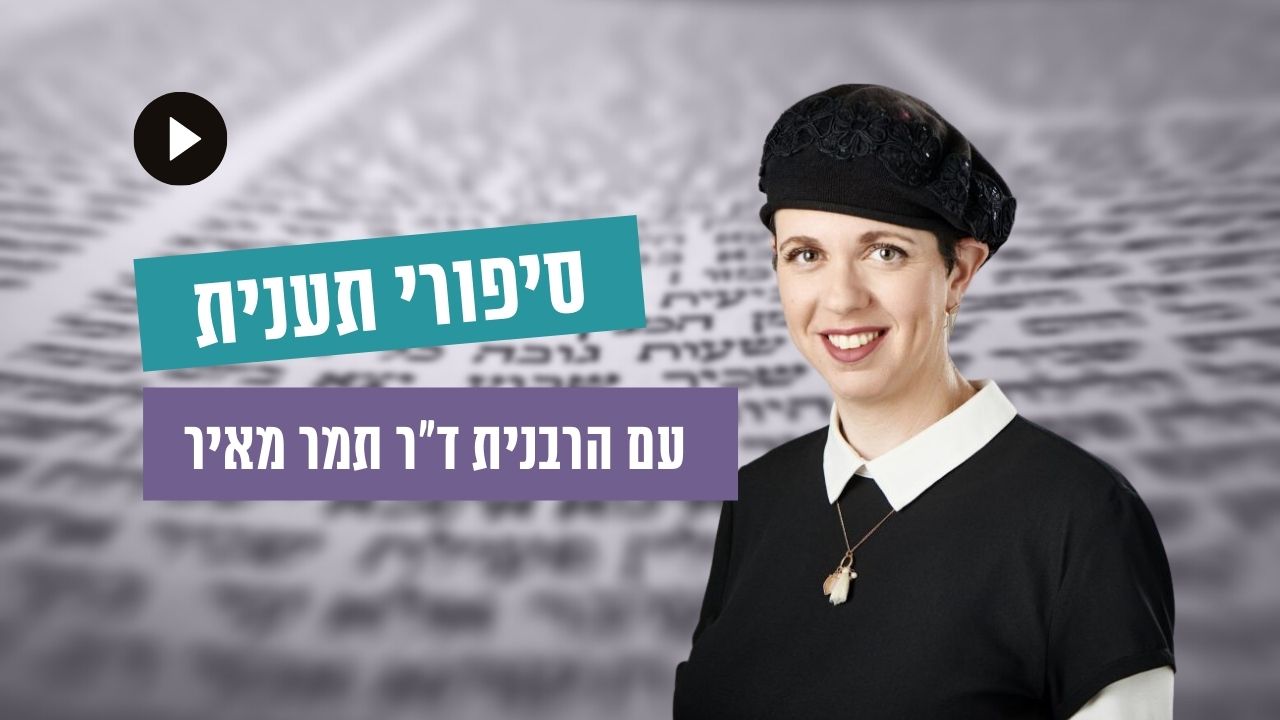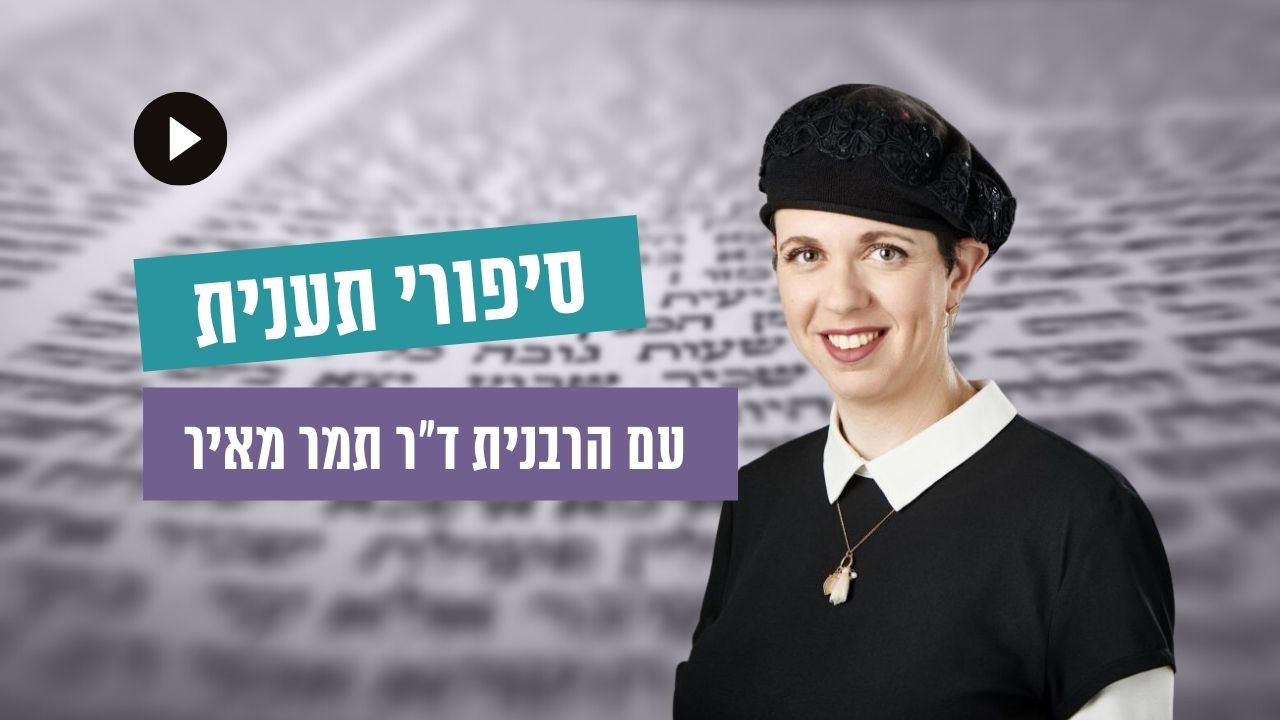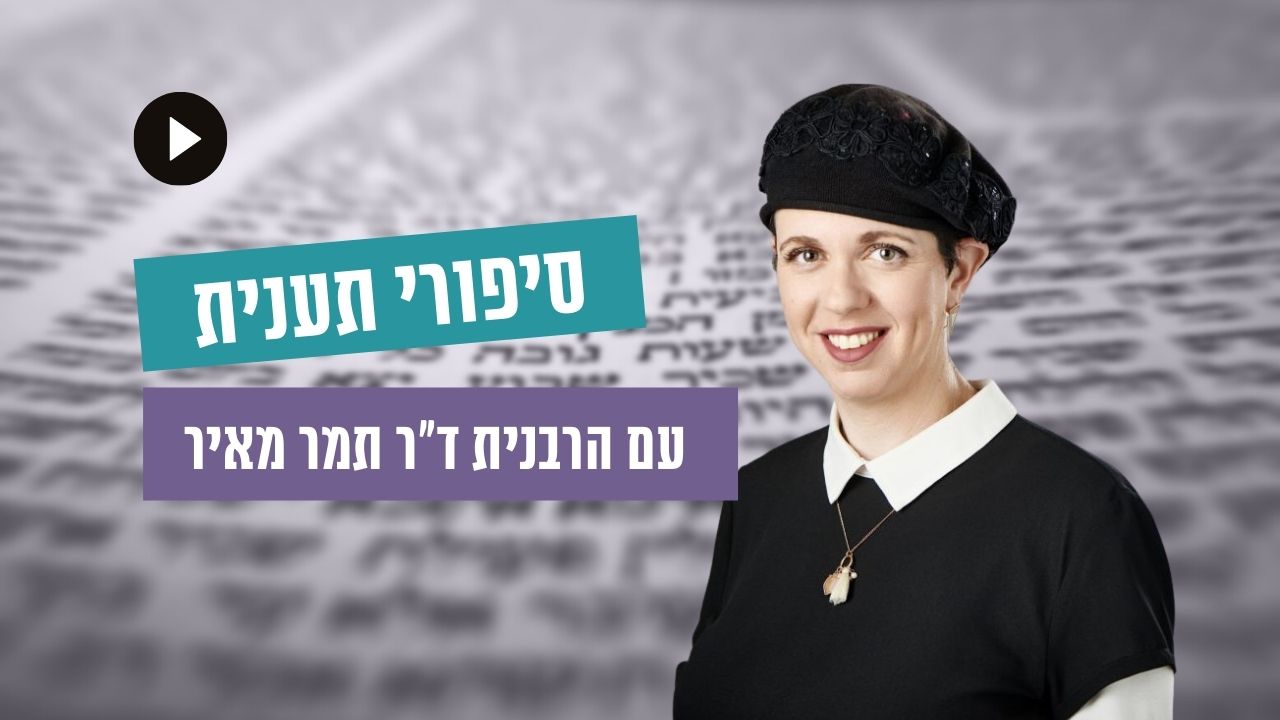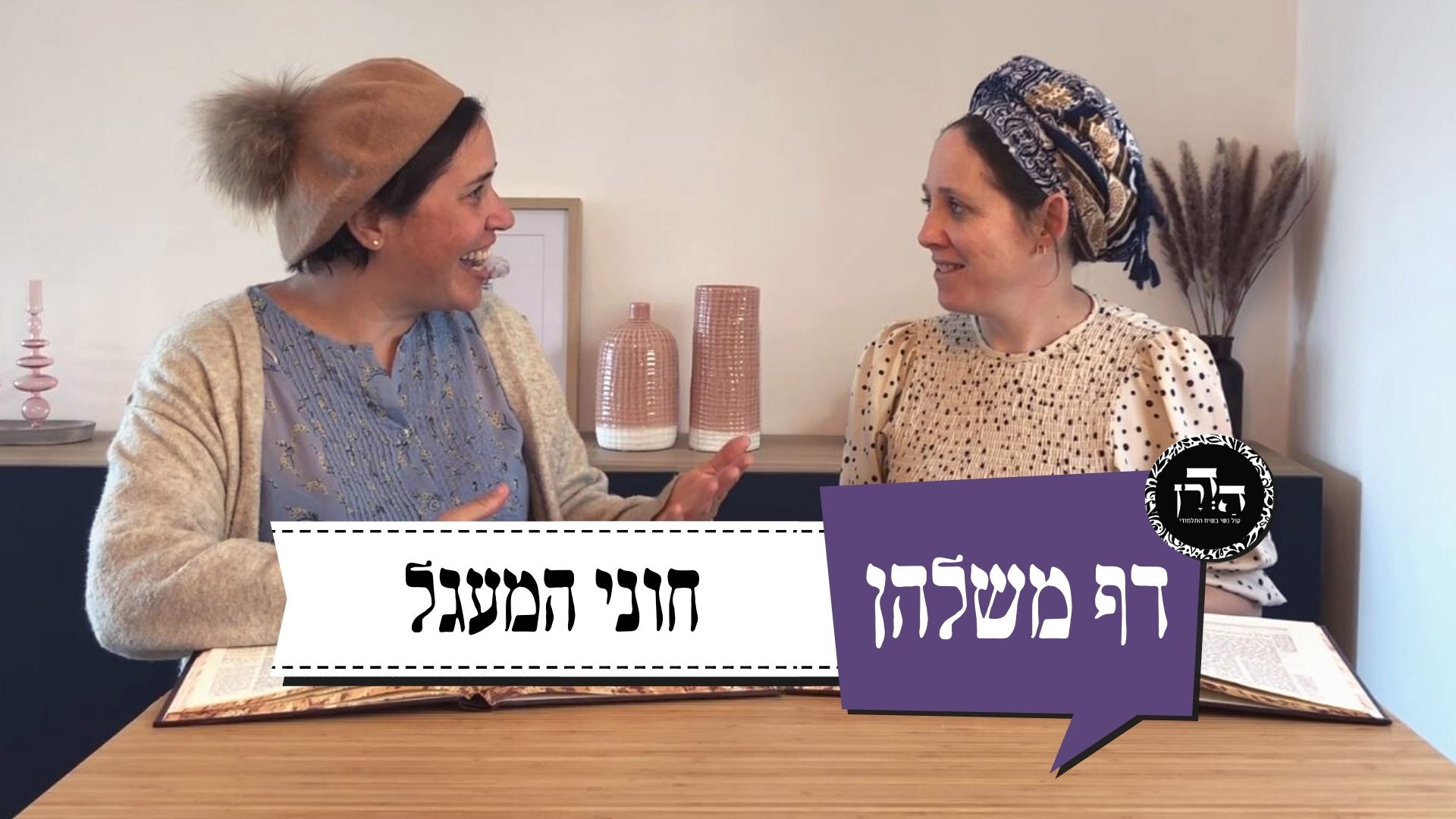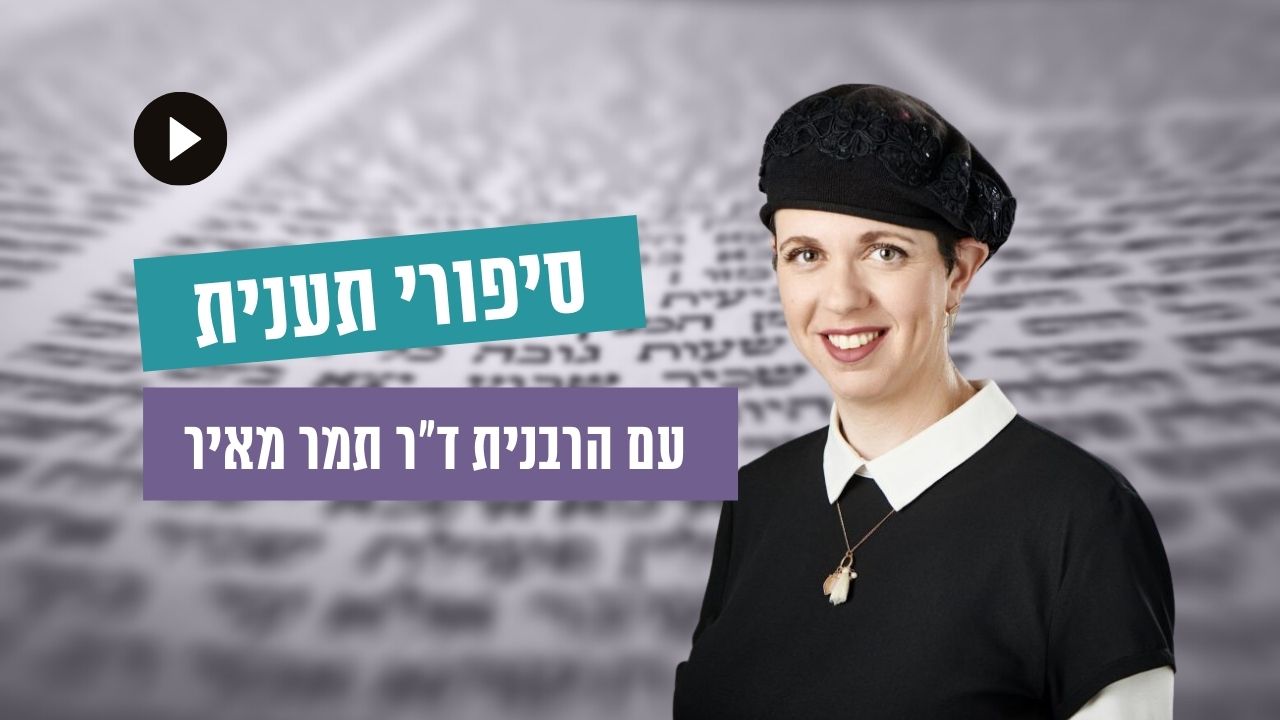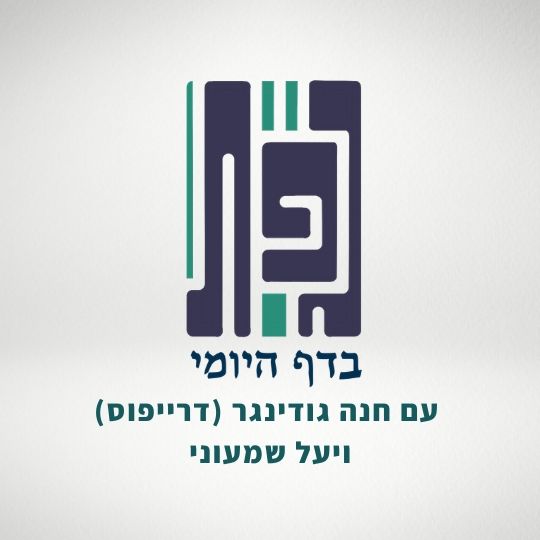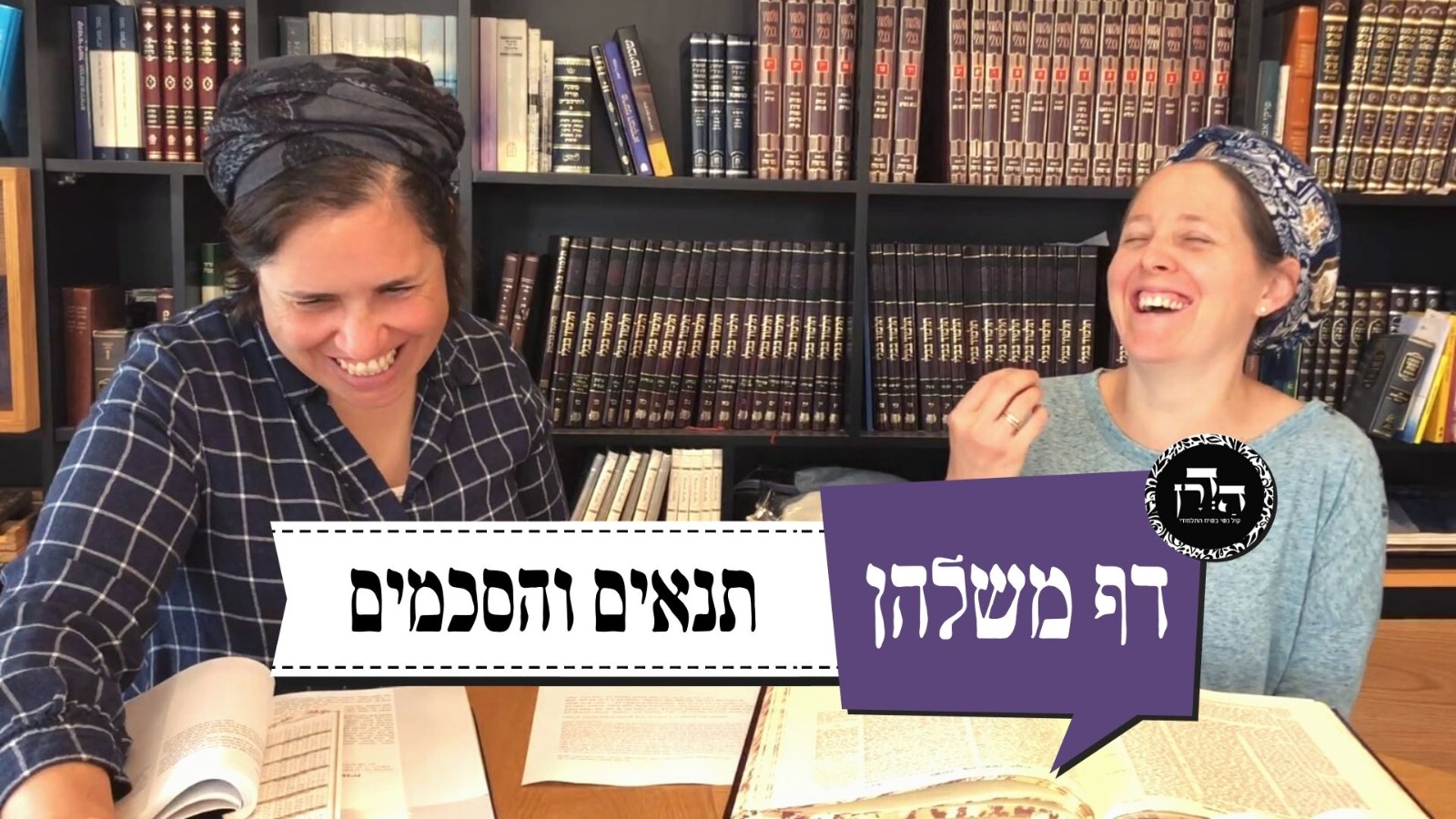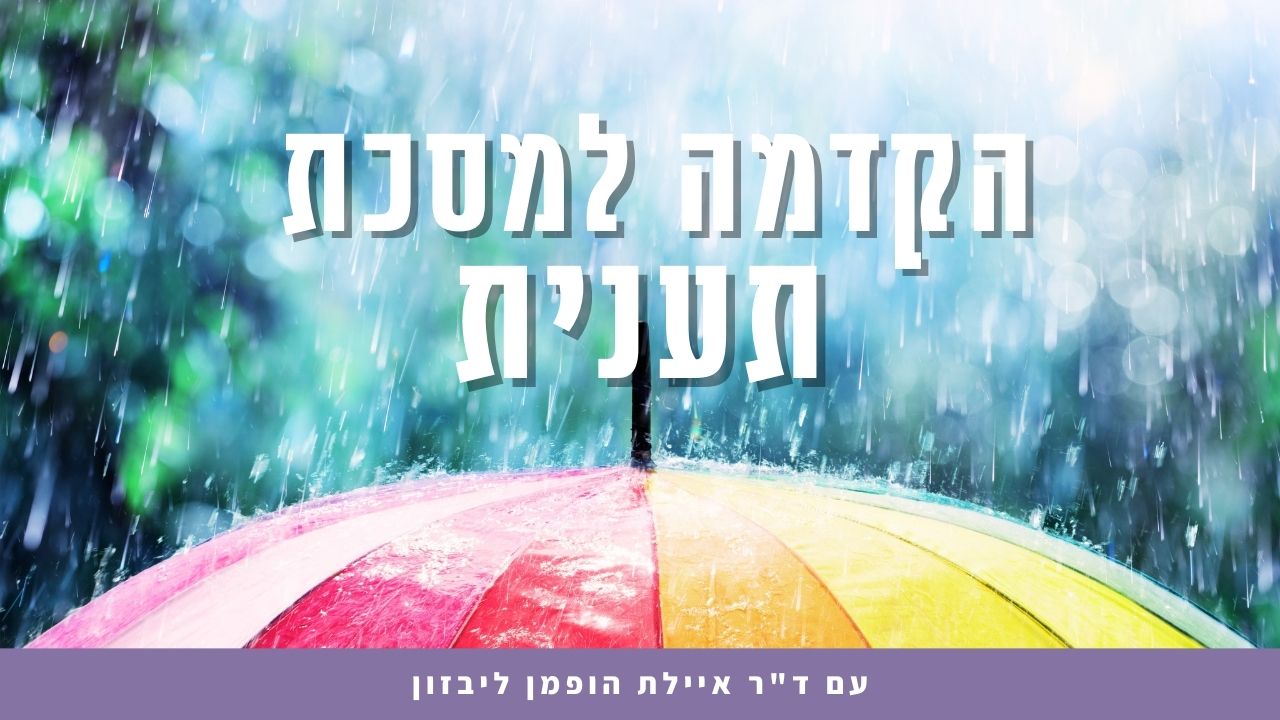הלימוד החודש מוקדש לרפואת פיליס הכט, גיטל פעשא בת מאשה רחל על ידי חברותיה הרבות שאוהבות ומעריכות אותה.
הלימוד השבוע מוקדש ע”י נירה פלדמן לע”נ פיי דרק.
הלימוד השבוע מוקדש ע”י נירה פלדמן לע”נ פיי דרק.
רוצה להקדיש שיעור?

תקציר
גשם בליל שלישי ובליל שבת נחשב כדבר טוב מכיוון שאנשים בדרך כלל לא נמצאים ברחובות בלילות אלו – למה? מובאת גרסה אחרת לסיפורו של חוני המעגל כשביקש גשמים. מספרים עוד סיפור נוסף על חוני שראה אדם שנטע עץ חרוב וחוני לא הבין איך הוא נוטע עץ כאשר הפירות יצמחו רק לאחר 70 שנה והוא אפילו לא יראה את פרי עמלו. בסופו של דבר חוני ישן 70 שנה ומתעורר לראות את נכדו של מי ששתל את העצים נהנה מהפירות ששתל סבו. חוני רוצה לראות מה קרה עם משפחתו אך אף אחד בביתו לא מזהv אותו ולא מאמיi לו שהוא חוני. גם בבית המדרש קורה אותו דבר, למרות שדווקא כוח המגי שלו (כל הקושיות שהקשו בבית המדרש נענו כמו שהיה בימי חוני) נראה. הדבר מביא למיתתו מרוב צער. מספרים גם סיפורים על נכדיו של חוני ויכולתם להביא גשמים. מה ההבדל בין התקיפים של ישראל לחסידים שבבבל? סיפורים נוספים מסופרים על רבי יונה ובנו רבי מני ועוצמתה של תפילתם.
כלים
הלימוד החודש מוקדש לרפואת פיליס הכט, גיטל פעשא בת מאשה רחל על ידי חברותיה הרבות שאוהבות ומעריכות אותה.
הלימוד השבוע מוקדש ע”י נירה פלדמן לע”נ פיי דרק.
הלימוד השבוע מוקדש ע”י נירה פלדמן לע”נ פיי דרק.
כלים
העמקה
רוצה להבין מה באמת קורה מתחת לפני השטח של הסוגיה?
שיעורים, פודקאסטים והרחבות של מיטב המורות שלנו יפתחו לך עוד זוויות וכיווני חשיבה.
חדשה בלימוד הגמרא?
זה הדף הראשון שלך? איזו התרגשות עצומה! יש לנו בדיוק את התכנים והכלים שיעזרו לך לעשות את הצעדים הראשונים ללמידה בקצב וברמה שלך, כך תוכלי להרגיש בנוח גם בתוך הסוגיות המורכבות ומאתגרות.
פסיפס הלומדות שלנו
גלי את קהילת הלומדות שלנו, מגוון נשים, רקעים וסיפורים. כולן חלק מתנועה ומסע מרגש ועוצמתי.
תענית כג
״בְּעִתָּם״ — בְּלֵילֵי רְבִיעִיּוֹת וּבְלֵילֵי שַׁבָּתוֹת.
“In their season” means on Wednesday eves, i.e., Tuesday nights, and on Shabbat eves, i.e., Friday nights, because at these times people are not out in the streets, either due to fear of demonic forces that were thought to wander on Tuesday nights or due to the sanctity of Shabbat.
שֶׁכֵּן מָצִינוּ בִּימֵי שִׁמְעוֹן בֶּן שָׁטַח שֶׁיָּרְדוּ לָהֶם גְּשָׁמִים בְּלֵילֵי רְבִיעִיּוֹת וּבְלֵילֵי שַׁבָּתוֹת, עַד שֶׁנַּעֲשׂוּ חִטִּים כִּכְלָיוֹת, וּשְׂעוֹרִים כְּגַרְעִינֵי זֵיתִים, וַעֲדָשִׁים כְּדִינְרֵי זָהָב, וְצָרְרוּ מֵהֶם דּוּגְמָא לַדּוֹרוֹת, לְהוֹדִיעַ כַּמָּה הַחֵטְא גּוֹרֵם, שֶׁנֶּאֱמַר: ״עֲוֹנוֹתֵיכֶם הִטּוּ אֵלֶּה וְחַטֹּאתֵיכֶם מָנְעוּ הַטּוֹב מִכֶּם״.
As we found in the days of Shimon ben Shetaḥ that rain invariably fell for them on Wednesday eves and on Shabbat eves, until wheat grew as big as kidneys, and barley as big as olive pits, and lentils as golden dinars. And they tied up some of these crops as an example [dugma] for future generations, to convey to them how much damage sin causes, as it is stated: “The Lord our God, Who gives rain, the former rain and the latter rain, in its season that keeps for us the appointed weeks of the harvest. Your iniquities have turned away these things, and your sins have withheld the good from you” (Jeremiah 5:24–25).
וְכֵן מָצִינוּ בִּימֵי הוֹרְדוֹס, שֶׁהָיוּ עוֹסְקִין בְּבִנְיַן בֵּית הַמִּקְדָּשׁ, וְהָיוּ יוֹרְדִין גְּשָׁמִים בַּלַּיְלָה, לְמָחָר נָשְׁבָה הָרוּחַ וְנִתְפַּזְּרוּ הֶעָבִים וְזָרְחָה הַחַמָּה, וְיָצְאוּ הָעָם לִמְלַאכְתָּן, וְיָדְעוּ שֶׁמְּלֶאכֶת שָׁמַיִם בִּידֵיהֶם.
And we likewise found that in the days of Herod that they were occupied in the building of the Temple, and rain would fall at night. And the next day the wind would blow, the clouds would disperse, the sun would shine, and the people would go out to their work. And as rain would fall only at a time when it would not interfere with their labor, the nation knew that the work of Heaven was being performed by their hands.
מַעֲשֶׂה שֶׁשָּׁלְחוּ לְחוֹנִי הַמְעַגֵּל וְכוּ׳. תָּנוּ רַבָּנַן: פַּעַם אַחַת יָצָא רוֹב אֲדָר וְלֹא יָרְדוּ גְּשָׁמִים, שָׁלְחוּ לְחוֹנִי הַמְעַגֵּל: הִתְפַּלֵּל וְיֵרְדוּ גְּשָׁמִים! הִתְפַּלֵּל, וְלֹא יָרְדוּ גְּשָׁמִים. עָג עוּגָה וְעָמַד בְּתוֹכָהּ, כְּדֶרֶךְ שֶׁעָשָׂה חֲבַקּוּק הַנָּבִיא, שֶׁנֶּאֱמַר: ״עַל מִשְׁמַרְתִּי אֶעֱמֹדָה וְאֶתְיַצְּבָה עַל מָצוֹר וְגוֹ׳״.
§ The mishna taught: An incident occurred in which the people sent a message to Ḥoni HaMe’aggel. This event is related in greater detail in the following baraita. The Sages taught: Once, most of the month of Adar had passed but rain had still not fallen. They sent this message to Ḥoni HaMe’aggel: Pray, and rain will fall. He prayed, but no rain fell. He drew a circle in the dust and stood inside it, in the manner that the prophet Habakkuk did, as it is stated: “And I will stand upon my watch and set myself upon the tower, and I will look out to see what He will say to me, and what I shall answer when I am reproved” (Habakkuk 2:1). This verse is taken to mean that Habakkuk fashioned a kind of prison for himself where he sat.
אָמַר לְפָנָיו: רִבּוֹנוֹ שֶׁל עוֹלָם! בָּנֶיךָ שָׂמוּ פְּנֵיהֶם עָלַי, שֶׁאֲנִי כְּבֶן בַּיִת לְפָנֶיךָ. נִשְׁבָּע אֲנִי בְּשִׁמְךָ הַגָּדוֹל שֶׁאֵינִי זָז מִכָּאן עַד שֶׁתְּרַחֵם עַל בָּנֶיךָ. הִתְחִילוּ גְּשָׁמִים מְנַטְּפִין. אָמְרוּ לוֹ תַּלְמִידָיו: רַבִּי! רְאִינוּךְ וְלֹא נָמוּת, כִּמְדוּמִּין אָנוּ שֶׁאֵין גְּשָׁמִים יוֹרְדִין אֶלָּא לְהַתִּיר שְׁבוּעָתְךָ.
Ḥoni said before God: Master of the Universe, Your children have turned their faces toward me, as I am like a member of Your household. Therefore, I take an oath by Your great name that I will not move from here until you have mercy upon Your children and answer their prayers for rain. Rain began to trickle down, but only in small droplets. His students said to him: Rabbi, we have seen that you can perform great wonders, but this quantity of rain is not enough to ensure that we will not die. It appears to us that a small amount of rain is falling only to enable you to dissolve your oath, but it is not nearly enough to save us.
אָמַר: לֹא כָּךְ שָׁאַלְתִּי, אֶלָּא גִּשְׁמֵי בּוֹרוֹת שִׁיחִין וּמְעָרוֹת. יָרְדוּ בְּזַעַף, עַד שֶׁכׇּל טִפָּה וְטִפָּה כִּמְלֹא פִּי חָבִית. וְשִׁיעֲרוּ חֲכָמִים שֶׁאֵין טִפָּה פְּחוּתָה מִלּוֹג. אָמְרוּ לוֹ תַּלְמִידָיו: רַבִּי, רְאִינוּךְ וְלֹא נָמוּת, כִּמְדוּמִּין אָנוּ שֶׁאֵין גְּשָׁמִים יוֹרְדִין אֶלָּא לְאַבֵּד הָעוֹלָם.
Ḥoni said to God: I did not ask for this, but for rain to fill the cisterns, ditches, and caves. Rain began to fall furiously, until each and every drop was as big as the mouth of a barrel, and the Sages estimated that no drop was less than a log in size. His students said to him: Rabbi, we have seen that you can call on God to perform miracles and we will not die, but now it appears to us that rain is falling only to destroy the world.
אָמַר לְפָנָיו: לֹא כָּךְ שָׁאַלְתִּי, אֶלָּא גִּשְׁמֵי רָצוֹן בְּרָכָה וּנְדָבָה. יָרְדוּ כְּתִיקְנָן, עַד שֶׁעָלוּ כׇּל הָעָם לְהַר הַבַּיִת, מִפְּנֵי הַגְּשָׁמִים. אָמְרוּ לוֹ: רַבִּי, כְּשֵׁם שֶׁהִתְפַּלַּלְתָּ שֶׁיֵּרְדוּ, כָּךְ הִתְפַּלֵּל וְיֵלְכוּ לָהֶם. אָמַר לָהֶם: כָּךְ מְקוּבְּלַנִי שֶׁאֵין מִתְפַּלְּלִין עַל רוֹב הַטּוֹבָה.
Ḥoni again said before God: I did not ask for this harmful rain either, but for rain of benevolence, blessing, and generosity. Subsequently, the rains fell in their standard manner, until all of the people sought higher ground and ascended to the Temple Mount due to the rain. They said to him: Rabbi, just as you prayed that the rains should fall, so too, pray that they should stop. He said to them: This is the tradition that I received, that one does not pray over an excess of good.
אַף עַל פִּי כֵן, הָבִיאוּ לִי פַּר הוֹדָאָה. הֵבִיאוּ לוֹ פַּר הוֹדָאָה, סָמַךְ שְׁתֵּי יָדָיו עָלָיו, וְאָמַר לְפָנָיו: רִבּוֹנוֹ שֶׁל עוֹלָם! עַמְּךָ יִשְׂרָאֵל שֶׁהוֹצֵאתָ מִמִּצְרַיִם אֵינָן יְכוֹלִין לֹא בְּרוֹב טוֹבָה וְלֹא בְּרוֹב פּוּרְעָנוּת. כָּעַסְתָּ עֲלֵיהֶם — אֵינָן יְכוֹלִין לַעֲמוֹד, הִשְׁפַּעְתָּ עֲלֵיהֶם טוֹבָה — אֵינָן יְכוֹלִין לַעֲמוֹד, יְהִי רָצוֹן מִלְּפָנֶיךָ שֶׁיִּפָּסְקוּ הַגְּשָׁמִים, וִיהֵא רֶיוַח בָּעוֹלָם. מִיָּד נָשְׁבָה הָרוּחַ, וְנִתְפַּזְּרוּ הֶעָבִים, וְזָרְחָה הַחַמָּה, וְיָצְאוּ הָעָם לַשָּׂדֶה וְהֵבִיאוּ לָהֶם כְּמֵהִין וּפִטְרִיּוֹת.
Ḥoni continued: Nevertheless, bring me a bull. I will sacrifice it as a thanks-offering and pray at the same time. They brought him a bull for a thanks-offering. He placed his two hands on its head and said before God: Master of the Universe, Your nation Israel, whom You brought out of Egypt, cannot bear either an excess of good or an excess of punishment. You grew angry with them and withheld rain, and they are unable to bear it. You bestowed upon them too much good, and they were also unable to bear it. May it be Your will that the rain stop and that there be relief for the world. Immediately, the wind blew, the clouds dispersed, the sun shone, and everyone went out to the fields and gathered for themselves truffles and mushrooms that had sprouted in the strong rain.
שָׁלַח לוֹ שִׁמְעוֹן בֶּן שָׁטַח: אִלְמָלֵא חוֹנִי אַתָּה, גּוֹזְרַנִי עָלֶיךָ נִידּוּי. שֶׁאִילּוּ שָׁנִים כִּשְׁנֵי אֵלִיָּהוּ שֶׁמַּפְתְּחוֹת גְּשָׁמִים בְּיָדוֹ שֶׁל אֵלִיָּהוּ, לֹא נִמְצָא שֵׁם שָׁמַיִם מִתְחַלֵּל עַל יָדְךָ,
Shimon ben Shetaḥ relayed to Ḥoni HaMe’aggel: If you were not Ḥoni, I would have decreed ostracism upon you. For were these years like the years of Elijah, when the keys of rain were entrusted in Elijah’s hands, and he swore it would not rain, wouldn’t the name of Heaven have been desecrated by your oath not to leave the circle until it rained? Once you have pronounced this oath, either yours or Elijah’s must be falsified.
אֲבָל מָה אֶעֱשֶׂה לְךָ, שֶׁאַתָּה מִתְחַטֵּא לִפְנֵי הַמָּקוֹם וְעוֹשֶׂה לְךָ רְצוֹנְךָ, כְּבֵן שֶׁמִּתְחַטֵּא עַל אָבִיו וְעוֹשֶׂה לוֹ רְצוֹנוֹ, וְאוֹמֵר לוֹ: אַבָּא, הוֹלִיכַנִי לְרׇחְצֵנִי בְּחַמִּין. שׇׁטְפֵנִי בְּצוֹנֵן. תֵּן לִי אֱגוֹזִים, שְׁקֵדִים, אֲפַרְסְקִים וְרִמּוֹנִים — וְנוֹתֵן לוֹ. וְעָלֶיךָ הַכָּתוּב אוֹמֵר: ״יִשְׂמַח אָבִיךָ וְאִמֶּךָ וְתָגֵל יוֹלַדְתֶּךָ״.
However, what can I do to you, as you nag God and He does your bidding, like a son who nags his father and his father does his bidding. And the son says to his father: Father, take me to be bathed in hot water; wash me with cold water; give me nuts, almonds, peaches, and pomegranates. And his father gives him. About you, the verse states: “Your father and mother will be glad and she who bore you will rejoice” (Proverbs 23:25).
תָּנוּ רַבָּנַן: מָה שָׁלְחוּ בְּנֵי לִשְׁכַּת הַגָּזִית לְחוֹנִי הַמְעַגֵּל — ״וְתִגְזַר אֹמֶר וְיָקׇם לָךְ וְעַל דְּרָכֶיךָ נָגַהּ אוֹר״.
The Sages taught: What message did the members of the Chamber of the Hewn Stone, the Great Sanhedrin, send to Ḥoni HaMe’aggel? About you, the verse states: “You shall also decree a matter, and it shall be established for you; and the light shall shine upon your ways. When they cast down, you will say: There is lifting up, for He saves the humble person. He will deliver the one who is not innocent and he will be delivered through the cleanness of your hands” (Job 22:28–30).
״וְתִגְזַר אֹמֶר״ — אַתָּה גָּזַרְתָּ מִלְּמַטָּה, וְהַקָּדוֹשׁ בָּרוּךְ הוּא מְקַיֵּים מַאֲמָרְךָ מִלְמַעְלָה. ״וְעַל דְּרָכֶיךָ נָגַהּ אוֹר״ — דּוֹר שֶׁהָיָה אָפֵל הֵאַרְתָּ בִּתְפִלָּתֶךָ.
They interpreted: “You shall also decree a matter”; you, Ḥoni, decree from below, and the Holy One, Blessed be He, fulfills your statement from above. “And the light shall shine upon your ways”; a generation that was in darkness, you have illuminated it with your prayer.
״כִּי הִשְׁפִּילוּ וַתֹּאמֶר גֵּוָה״ — דּוֹר שֶׁהָיָה שָׁפֵל הִגְבַּהְתּוֹ בִּתְפִלָּתֶךָ. ״וְשַׁח עֵינַיִם יוֹשִׁעַ״ — דּוֹר שֶׁשַּׁח בַּעֲוֹנוֹ הוֹשַׁעְתּוֹ בִּתְפִלָּתֶךָ. ״יְמַלֵּט אִי נָקִי״ — דּוֹר שֶׁלֹּא הָיָה נָקִי מִלַּטְתּוֹ בִּתְפִלָּתֶךָ. ״וְנִמְלַט בְּבֹר כַּפֶּיךָ״ — מִלַּטְתּוֹ בְּמַעֲשֵׂה יָדֶיךָ הַבְּרוּרִין.
“When they cast down, you will say: There is lifting up”; a generation that was cast down, you lifted it up with your prayer. “For He saves the humble person”; a generation that was humble in its transgression, you saved it through your prayer. “He will deliver the one who is not innocent”; a generation that was not innocent, you have delivered it through your prayer. “And he will be delivered through the cleanness of your hands”; you have delivered an undeserving generation through the clean work of your hands.
אָמַר רַבִּי יוֹחָנָן: כׇּל יָמָיו שֶׁל אוֹתוֹ צַדִּיק, הָיָה מִצְטַעֵר עַל מִקְרָא זֶה: ״שִׁיר הַמַּעֲלוֹת בְּשׁוּב ה׳ אֶת שִׁיבַת צִיּוֹן הָיִינוּ כְּחֹלְמִים״, אָמַר: מִי אִיכָּא דְּנָיֵים שִׁבְעִין שְׁנִין בְּחֶלְמָא?
§ The Gemara relates another story about Ḥoni HaMe’aggel. Rabbi Yoḥanan said: All the days of the life of that righteous man, Ḥoni, he was distressed over the meaning of this verse: “A song of Ascents: When the Lord brought back those who returned to Zion, we were like those who dream” (Psalms 126:1). He said to himself: Is there really a person who can sleep and dream for seventy years? How is it possible to compare the seventy-year exile in Babylonia to a dream?
יוֹמָא חַד הֲוָה אָזֵל בְּאוֹרְחָא, חַזְיֵיהּ לְהָהוּא גַּבְרָא דַּהֲוָה נָטַע חָרוּבָא, אֲמַר לֵיהּ: הַאי, עַד כַּמָּה שְׁנִין טָעֵין? אֲמַר לֵיהּ: עַד שִׁבְעִין שְׁנִין. אֲמַר לֵיהּ: פְּשִׁיטָא לָךְ דְּחָיֵית שִׁבְעִין שְׁנִין? אֲמַר לֵיהּ: אֲנָא חָרוּבָא בְּעָלְמָא אַשְׁכְּחֵיהּ. כִּי הֵיכִי דִּשְׁתַלוּ לִי אֲבָהָתִי — שְׁתַלִי נָמֵי לִבְרָאִי.
One day, he was walking along the road when he saw a certain man planting a carob tree. Ḥoni said to him: This tree, after how many years will it bear fruit? The man said to him: It will not produce fruit until seventy years have passed. Ḥoni said to him: Is it obvious to you that you will live seventy years, that you expect to benefit from this tree? He said to him: That man himself found a world full of carob trees. Just as my ancestors planted for me, I too am planting for my descendants.
יָתֵיב, קָא כָּרֵיךְ רִיפְתָּא, אֲתַאי לֵיהּ שִׁינְתָּא, נִים. אַהְדַּרָא לֵיהּ מְשּׁוּנִּיתָא, אִיכַּסִּי מֵעֵינָא, וְנִים שִׁבְעִין שְׁנִין. כִּי קָם, חַזְיֵיהּ לְהָהוּא גַּבְרָא דְּהוּא קָא מְלַקֵּט מִינַּיְיהוּ, אָמַר לֵיהּ: אַתְּ הוּא דִּשְׁתַלְתֵּיהּ? אֲמַר לֵיהּ: בַּר בְּרֵיהּ אֲנָא. אֲמַר לֵיהּ: שְׁמַע מִינַּהּ דִּנְיַימִי שִׁבְעִין שְׁנִין. חֲזָא לַחֲמָרְ[תֵּ]יהּ דְּאִתְיְילִידָא לַיהּ רַמְכֵי רַמְכֵי.
Ḥoni sat and ate bread. Sleep overcame him and he slept. A cliff formed around him, and he disappeared from sight and slept for seventy years. When he awoke, he saw a certain man gathering carobs from that tree. Ḥoni said to him: Are you the one who planted this tree? The man said to him: I am his son’s son. Ḥoni said to him: I can learn from this that I have slept for seventy years, and indeed he saw that his donkey had sired several herds during those many years.
אֲזַל לְבֵיתֵיהּ אֲמַר לְהוּ: בְּרֵיהּ דְּחוֹנִי הַמְעַגֵּל מִי קַיָּים? אֲמַרוּ לֵיהּ: בְּרֵיהּ לֵיתֵאּ, בַּר בְּרֵיהּ אִיתֵאּ. אֲמַר לְהוּ: אֲנָא חוֹנִי הַמְעַגֵּל. לָא הֵימְנוּהוּ. אֲזַל לְבֵית הַמִּדְרָשׁ, שַׁמְעִינְהוּ לְרַבָּנַן דְּקָאָמְרִי: נְהִירָן שְׁמַעְתָּתִין כְּבִשְׁנֵי חוֹנִי הַמְעַגֵּל, דְּכִי הָוֵי עָיֵיל לְבֵית מִדְרְשָׁא — כֹּל קוּשְׁיָא דַּהֲווֹ לְהוּ לְרַבָּנַן הֲוָה מְפָרֵק לְהוּ. אָמַר לְהוּ: אֲנָא נִיהוּ, וְלָא הֵימְנוּהוּ, וְלָא עָבְדִי לֵיהּ יְקָרָא כִּדְמִבְּעֵי לֵיהּ. חֲלַשׁ דַּעְתֵּיהּ, בְּעָא רַחֲמֵי, וּמִית. אָמַר רָבָא: הַיְינוּ דְּאָמְרִי אִינָשֵׁי: אוֹ חַבְרוּתָא אוֹ מִיתוּתָא.
Ḥoni went home and said to the members of the household: Is the son of Ḥoni HaMe’aggel alive? They said to him: His son is no longer with us, but his son’s son is alive. He said to them: I am Ḥoni HaMe’aggel. They did not believe him. He went to the study hall, where he heard the Sages say about one scholar: His halakhot are as enlightening and as clear as in the years of Ḥoni HaMe’aggel, for when Ḥoni HaMe’aggel would enter the study hall he would resolve for the Sages any difficulty they had. Ḥoni said to them: I am he, but they did not believe him and did not pay him proper respect. Ḥoni became very upset, prayed for mercy, and died. Rava said: This explains the folk saying that people say: Either friendship or death, as one who has no friends is better off dead.
אַבָּא חִלְקִיָּה בַּר בְּרֵיהּ דְּחוֹנִי הַמְעַגֵּל הֲוָה, וְכִי מִצְטְרִיךְ עָלְמָא לְמִיטְרָא הֲווֹ מְשַׁדְּרִי רַבָּנַן לְגַבֵּיהּ וּבָעֵי רַחֲמֵי, וְאָתֵי מִיטְרָא. זִימְנָא חֲדָא אִיצְטְרִיךְ עָלְמָא לְמִיטְרָא, שַׁדּוּר רַבָּנַן זוּגָא דְּרַבָּנַן לְגַבֵּיהּ לְמִבְעֵי רַחֲמֵי דְּנֵיתֵי מִיטְרָא. אֲזוּל לְבֵיתֵיהּ וְלָא אַשְׁכְּחוּהּו, אֲזוּל בְּדַבְרָא וְאַשְׁכְּחוּהּ דַּהֲוָה קָא רָפֵיק, יְהַבוּ לֵיהּ שְׁלָמָא
§ The Gemara relates another story, this time about Ḥoni HaMe’aggel’s descendants, who were also renowned for their righteous deeds. Abba Ḥilkiyya was the son of Ḥoni HaMe’aggel’s son. And when the world was in need of rain they would send Sages to him, and he would pray for mercy, and rain would fall. Once the world was in need of rain, and the Sages sent a pair of Sages to him so that he would pray for mercy and rain would fall. They went to his house but they did not find him there. They went to the field and found him hoeing the ground. They greeted him,
וְלָא אַסְבַּר לְהוּ אַפֵּיהּ. בְּפַנְיָא, כִּי הֲוָה מְנַקֵּט צִיבֵי, דְּרָא צִיבֵי וּמָרָא בְּחַד כַּתְפָּא, וּגְלִימָא בְּחַד כַּתְפָּא. כּוּלַּהּ אוֹרְחָא לָא סָיֵים מְסָאנֵי, כִּי מָטֵי לְמַיָּא סָיֵים מְסָאנֵיהּ. כִּי מְטָא לְהִיזְמֵי וְהִיגֵי דַּלִּינְהוּ לְמָנֵיהּ. כִּי מְטָא לְמָתָא, נָפְקָה דְּבֵיתְהוּ לְאַפֵּיהּ כִּי מִיקַּשְּׁטָא. כִּי מְטָא לְבֵיתֵיהּ, עַלַּת דְּבֵיתְהוּ בְּרֵישָׁא, וַהֲדַר עָיֵיל אִיהוּ, וַהֲדַר עָיְילִי רַבָּנַן. יְתֵיב וּכְרֵיךְ רִיפְתָּא וְלָא אֲמַר לְהוּ לְרַבָּנַן תּוּ כְּרוּכוּ. פְּלַג רִיפְתָּא לְיָנוֹקֵי, לְקַשִּׁישָׁא — חֲדָא, וּלְזוּטְרָא — תְּרֵי.
but he did not return their greetings. Toward evening, as he was gathering firewood, he placed the wood and hoe on one shoulder and his cloak on the other shoulder. Along the entire way he did not wear his shoes, but when he reached water he put on his shoes. When he reached an area filled with shrubs and thorns he lifted up his clothes. When he reached the city, his wife came out to greet him, adorned with finery. When he reached his house, his wife entered first, he entered afterward, and afterward the two Sages entered. He sat and ate bread, but he did not say to the Sages: Come and eat, as was customary and polite. He divided bread to his children; to the elder child he gave one piece and to the younger one he gave two.
אֲמַר לַהּ לִדְבֵיתְהוּ: יָדַעְנָא דְּרַבָּנַן מִשּׁוּם מִיטְרָא קָא אָתוּ, נִיסַּק לְאִיגָּרָא וְנִיבְעֵי רַחֲמֵי, אֶפְשָׁר דְּמִרַצֵּי הַקָּדוֹשׁ בָּרוּךְ הוּא וְיֵיתֵי מִיטְרָא וְלָא נַחְזֵיק טֵיבוּתָא לְנַפְשִׁין. סַקוּ לְאִיגָּרָא, קָם אִיהוּ בַּחֲדָא זָוִיתָא, וְאִיהִי בַּחֲדָא זָוִיתָא, קְדוּם סְלוּק עֲנָנֵי מֵהָךְ זָוִיתָא דִּדְבֵיתְהוּ. כִּי נָחֵית אֲמַר לְהוּ: אַמַּאי אֲתוֹ רַבָּנַן? אֲמַרוּ לֵיהּ: שַׁדַּרוּ לַן רַבָּנַן לְגַבֵּי דְּמָר לְמִיבְעֵי רַחֲמֵי אַמִּיטְרָא. אֲמַר לְהוּ: בָּרוּךְ הַמָּקוֹם שֶׁלֹּא הִצְרִיךְ אֶתְכֶם לְאַבָּא חִלְקִיָּה.
Abba Ḥilkiyya said to his wife: I know that these Sages have come due to the rain. Let us go up to the roof and pray for mercy. Perhaps the Holy One, Blessed be He, will be appeased, and it will rain, and we will not receive credit ourselves for the rainfall. They went up to the roof. He stood in one corner and she stood in the other corner. Clouds began to form on that side where his wife stood. When he descended, he said to the Sages: Why have the Sages come? They said to him: The other Sages have sent us to the Master, so that you should pray for mercy for rain. He said to them: Blessed is God, Who did not require you to petition Abba Ḥilkiyya, as the sky has filled with clouds and rain is certainly on its way.
אֲמַרוּ לֵיהּ: יָדְעִינַן דְּמִיטְרָא מֵחֲמַת מָר הוּא דַּאֲתָא, אֶלָּא לֵימָא לַן מָר הָנֵי מִילֵּי דִּתְמִיהָא לַן: מַאי טַעְמָא כִּי יָהֵיבְנָא לְמָר שְׁלָמָא לָא אַסְבַּר לַן מָר אַפֵּיהּ? אֲמַר לְהוּ: שְׂכִיר יוֹם הֲוַאי, וְאָמֵינָא: לָא אֶיפַּגַּר. וּמַאי טַעְמָא דְּרָא מָר צִיבֵי אַחַד כַּתְפֵּיהּ וּגְלִימָא אַחַד כַּתְפֵּיהּ? אֲמַר לְהוּ: טַלִּית שְׁאוּלָה הָיְתָה. לְהָכִי שְׁאַלִי, וּלְהָכִי לָא שְׁאַלִי.
They said to him: We know that the rain has come on the Master’s account. However, let the Master please say and explain to us these aspects of your behavior that are puzzling to us: What is the reason that when we greeted the Master, the Master did not return our greeting? He said to them: I am a day laborer, hired for the day, and I said to myself that I may not delay my work to answer you. They further inquired: And what is the reason that the Master carried the firewood on one shoulder and his cloak on the other shoulder? He said to them: It was a borrowed robe. I borrowed it for this purpose, to wear it, and I did not borrow it for that purpose, to place wood on it.
מַאי טַעְמָא כּוּלַּהּ אוֹרְחָא לָא סָיֵים מָר מְסָאנֵיהּ וְכִי מָטֵי לְמַיָּא סָיֵים מְסָאנֵיהּ? אֲמַר לְהוּ: כּוּלַּהּ אוֹרְחָא חָזֵינָא, בְּמַיָּא לָא קָא חָזֵינָא. מַאי טַעְמָא כִּי מְטָא מָר לְהִיזְמֵי וְהִיגֵי דַּלִּינְהוּ לְמָנֵיהּ? אֲמַר לְהוּ: זֶה מַעֲלֶה אֲרוּכָה, וְזֶה אֵינוֹ מַעֲלֶה אֲרוּכָה.
The Sages continued to ask Abba Ḥilkiyya about his unusual behavior. What is the reason that the entire way the Master did not wear his shoes, but when he reached water he put on his shoes? He said to them: The entire way I can see and take care where I walk, and therefore there is no need for me to wear out my shoes, but in the water I cannot see. Therefore, I put on my shoes to avoid hurting myself. They asked: What is the reason that when the Master reached shrubs and thorns, he lifted up his clothes? He said to them: This flesh will heal if it is scratched by thorns, but this garment will not heal if it is torn.
מַאי טַעְמָא כִּי מְטָא מָר לְמָתָא נָפְקָא דְּבֵיתְהוּ דְּמָר כִּי מִיקַּשְּׁטָא? אֲמַר לְהוּ: כְּדֵי שֶׁלֹּא אֶתֵּן עֵינַי בְּאִשָּׁה אַחֶרֶת. מַאי טַעְמָא עָיְילָא הִיא בְּרֵישָׁא, וַהֲדַר עָיֵיל מָר אַבָּתְרַהּ, וַהֲדַר עָיְילִינַן אֲנַן? אֲמַר לְהוּ מִשּׁוּם דְּלָא בְּדִיקִיתוּ לִי.
They further inquired: What is the reason that when the Master reached the city, the Master’s wife came out adorned in her finery? He said to them: She dresses that way so that when I walk through the city I will not set my eyes upon another woman. They asked: What is the reason that she entered first, and afterward the Master entered, and only afterward we entered? He said to them: Because you have not been checked by me. I cannot be sure how you will act, and therefore I did not want you to be alone with my wife.
מַאי טַעְמָא כִּי כָּרֵיךְ מָר רִיפְתָּא לָא אֲמַר לַן ״אֵיתוֹ כְּרוּכוּ״? מִשּׁוּם דְּלָא נְפִישָׁא רִיפְתָּא, וְאָמֵינָא: לָא אַחְזֵיק בְּהוּ בְּרַבָּנַן טֵיבוּתָא בְּחִנָּם. מַאי טַעְמָא יְהֵיב מָר לְיָנוֹקָא קַשִּׁישָׁא חֲדָא רִיפְתָּא וּלְזוּטְרָא תְּרֵי? אֲמַר לְהוּ: הַאי — קָאֵי בְּבֵיתָא, וְהַאי — יָתֵיב בְּבֵי כְנִישְׁתָּא.
The Sages were not done with their questions. What is the reason that when the Master ate bread, you did not say to us: Come and eat? He replied: Because there is not enough bread for guests, and I said to myself that I should not gain credit from the Sages for nothing, by offering you food I cannot serve you. They asked: What is the reason that the Master gave the older child one piece of bread and the younger child two? He said to them: This older child stays at home, and if he is hungry he can eat at any time, but this younger child sits and studies in the synagogue, and therefore he is hungrier.
וּמַאי טַעְמָא קְדֻים סְלוּק עֲנָנֵי מֵהָךְ זָוִיתָא דַּהֲווֹת קָיְימָא דְּבֵיתְהוּ דְּמָר לַעֲנָנָא דִידֵיהּ? מִשּׁוּם דְּאִיתְּתָא שְׁכִיחָא בְּבֵיתָא, וְיָהֲבָא רִיפְתָּא לַעֲנִיֵּי, וּמְקָרְבָא הֲנָיָיתַהּ. וַאֲנָא יָהֵיבְנָא זוּזָא, וְלָא מְקָרְבָא הֲנָיָיתֵיהּ. אִי נָמֵי: הָנְהוּ בִּירְיוֹנֵי דְּהָווּ בְּשִׁיבָבוּתַן, אֲנָא בָּעֵי רַחֲמֵי דְּלֵימוּתוּ, וְהִיא בָּעֲיָא רַחֲמֵי דְּלִיהְדְּרוּ בִּתְיוּבְתָּא [וַהֲדַרוּ].
The two Sages had one final set of queries for Abba Ḥilkiyya. And what is the reason that the clouds began to form on that side where the Master’s wife stood before your own side? He explained: Because my wife is frequently at home, and she gives bread to the poor, and therefore her provision of benefit to the needy is immediate, i.e., soon after the rains fall she is able to provide the needy with provisions. Accordingly, her prayers are answered without delay. In contrast, I give money to the poor, and consequently, the benefit of my gift is not immediate, i.e., it takes a lot of time before the rainfall results in my ability to give money to the poor. Alternatively, her prayers may have been answered first because when certain hooligans [biryonei] were living in our neighborhood, I prayed that they should die, but she prayed that they should repent. And indeed, they repented.
חָנָן הַנֶּחְבָּא בַּר בְּרַתֵּיה דְּחוֹנִי הַמְעַגֵּל הֲוָה, כִּי מִצְטְרִיךְ עָלְמָא לְמִיטְרָא, הֲווֹ מְשַׁדְּרִי רַבָּנַן יָנוֹקֵי דְּבֵי רַב לְגַבֵּיהּ וְנָקְטִי לֵיהּ בְּשִׁיפּוּלֵי גְלִימֵיהּ, וַאֲמַרוּ לֵיהּ: אַבָּא, אַבָּא, הַב לַן מִיטְרָא! אָמַר לִפְנֵי הַקָּדוֹשׁ בָּרוּךְ הוּא: רִבּוֹנוֹ שֶׁל עוֹלָם! עֲשֵׂה בִּשְׁבִיל אֵלּוּ, שֶׁאֵין מַכִּירִין בֵּין אַבָּא דְּיָהֵיב מִיטְרָא, לְאַבָּא דְּלָא יָהֵיב מִיטְרָא. וְאַמַּאי קָרֵי לֵיהּ ״חָנָן הַנֶּחְבָּא״ — מִפְּנֵי שֶׁהָיָה מַחְבִּיא עַצְמוֹ בְּבֵית הַכִּסֵּא.
§ The Gemara relates another story about a descendant of Ḥoni HaMe’aggel. Ḥanan HaNeḥba was the son of Ḥoni HaMe’aggel’s daughter. When the world was in need of rain, the Sages would send schoolchildren to him, and they would grab him by the hem of his cloak and say to him: Father, Father, give us rain. He said before the Holy One, Blessed be He: Master of the Universe, act on behalf of these children, who cannot distinguish between their Father in Heaven, Who can provide rain, and the father who cannot provide rain. The Gemara asks: And why was he called Ḥanan HaNeḥba? Because he would hide [maḥbi] himself in the lavatory so that people would not bestow honor upon him.
אֲמַר לֵיהּ רַבִּי זְרִיקָא לְרַב סָפְרָא: תָּא חֲזִי מָה בֵּין תַּקִּיפֵי דְּאַרְעָא דְיִשְׂרָאֵל לַחֲסִידֵי דְבָבֶל. חֲסִידֵי דְבָבֶל רַב הוּנָא וְרַב חִסְדָּא, כִּי הֲוָה מִצְטְרִיךְ עָלְמָא לְמִיטְרָא אָמְרִי: נִיכַּנֵּיף הֲדָדֵי וְנִיבְעֵי רַחֲמֵי, אֶפְשָׁר דְּמִירַצֵּי הַקָּדוֹשׁ בָּרוּךְ הוּא דְּיֵיתֵי מִיטְרָא.
The Gemara relates another story about righteous individuals praying for rain. Rabbi Zerika said to Rav Safra: Come and see what the difference is between the powerful men of Eretz Yisrael and the pious men of Babylonia. This comparison serves to highlight the righteousness of the great men of Eretz Yisrael. By the pious men of Babylonia, I mean Rav Huna and Rav Ḥisda. When the world is in need of rain, these Sages say: Let us assemble together and pray for mercy, and perhaps the Holy One, Blessed be He, will be appeased and bring rain. In this manner, the pious men of Babylonia publicized their prayers for rain.
תַּקִּיפֵי דְּאַרְעָא דְיִשְׂרָאֵל כְּגוֹן רַבִּי יוֹנָה אֲבוּהּ דְּרַבִּי מָנִי, כִּי הֲוָה מִצְטְרִיךְ עָלְמָא לְמִיטְרָא, הֲוָה עָיֵיל לְבֵיתֵיהּ וַאֲמַר לְהוּ: הַבוּ לִי גּוּאַלְקִי, וְאֵיזִיל וְאַיְיתֵי לִי בְּזוּזָא עִיבוּרָא. כִּי הֲוָה נָפֵיק לְבָרָא, אָזֵיל וְקָאֵי בְּדוּכְתָּא עַמִּיקְתָּא, דִּכְתִיב: ״מִמַּעֲמַקִּים קְרָאתִיךָ ה׳״, וְקָאֵי בְּדוּכְתָּא צְנִיעָא, וּמִכַּסֵּי בְּשַׂקָּא, וּבָעֵי רַחֲמֵי, וְאָתֵי מִיטְרָא. כִּי הֲוָה אָתֵי לְבֵיתֵיהּ, אָמְרִי לֵיהּ: אַיְיתִי מָר עִיבוּרָא? אֲמַר לְהוּ: אָמֵינָא, הוֹאִיל וַאֲתָא מִיטְרָא, הַשְׁתָּא רָוַוח עָלְמָא.
By contrast, the powerful men of Eretz Yisrael, such as Rabbi Yona, the father of Rabbi Mani, acted differently. When the world was in need of rain, he enters his house and say to his household: Give me my sack [gevalki] and I will go and buy myself a dinar of grain. When he went outside, he went and stood in a low place, as it is written: “Out of the depths I have called You, O Lord” (Psalms 130:1). And he would stand in a secluded place, and cover himself with sackcloth, and pray for mercy, and rain would come. When he would come home, they would say to him: Did the Master bring grain? He said to them: I said to myself, since rain has now come, there will be relief in the world and prices will soon go down. In this manner, he hid his greatness even from his own household.
וְתוּ, רַבִּי מָנִי בְּרֵיהּ הֲווֹ קָא מְצַעֲרִי לֵיהּ דְּבֵי נְשִׂיאָה. אִישְׁתַּטַּח עַל קִבְרָא דַאֲבוּהּ, אֲמַר לֵיהּ: אַבָּא אַבָּא! הָנֵי מְצַעֲרוּ לִי. יוֹמָא חַד הֲווֹ קָא חָלְפִי הָתָם, אִינְּקוּט כַּרְעָא דְסוּסָווֹתַיְיהוּ עַד דְּקַבִּילוּ עֲלַיְיהוּ דְּלָא קָא מְצַעֲרוּ לֵיהּ.
And furthermore, the Gemara relates that Rabbi Mani, Rabbi Yona’s son, was persecuted by members of the house of the Nasi. He prostrated himself upon his father’s grave and said to him: Father, Father, these men are persecuting me. One day, those men were passing there, by the grave, and the legs of their horses became stuck in the ground until they accepted upon themselves not to persecute Rabbi Mani anymore.
וְתוּ: רַבִּי מָנִי הֲוָה שְׁכִיחַ קַמֵּיהּ דְּרַבִּי יִצְחָק בֶּן אֶלְיָשִׁיב, אֲמַר לֵיהּ: עַתִּירֵי דְּבֵי חָמִי קָא מְצַעֲרוּ לִי. אֲמַר: לִיעֲנוֹ, וְאִיעֲנוֹ. אֲמַר: קָא דָחֲקוּ לִי. אֲמַר: לִיעַתְּרוּ, וְאִיעַתַּרוּ.
And furthermore, the Gemara relates that Rabbi Mani was frequently found before Rabbi Yitzḥak ben Elyashiv, a well-known miracle worker. Once, Rabbi Mani said to him: The wealthy members of my father-in-law’s house are persecuting me. Rabbi Yitzḥak said: May they become poor, so they will no longer lord over you. And indeed, they became poor. Some time later, Rabbi Mani said to his teacher: Now that they are poor they are pressuring me for financial support. Rabbi Yitzḥak said: May they become rich again. And indeed, they became rich.
אֲמַר: לָא מִיקַּבְּלִי עֲלַי אִינָשֵׁי בֵּיתִי. אֲמַר לֵיהּ: מָה שְׁמַהּ? חַנָּה. תִּתְיַיפִּי חַנָּה. וְנִתְיַיפֵּת. אֲמַר לֵיהּ: קָא מִגַּנְדְּרָא עֲלַי. אֲמַר לֵיהּ: אִי הָכִי תַּחְזוֹר חַנָּה לְשַׁחְרוּרִיתָהּ, וְחָזְרָה חַנָּה לְשַׁחְרוּרִיתָהּ.
Rabbi Mani said to his teacher: The members of my household, i.e., my wife, are not acceptable to me, as she is not beautiful. Rabbi Yitzḥak said: What is her name? Rabbi Mana replied: Ḥana. Rabbi Yitzḥak declared: Let Ḥana grow beautiful, and indeed she grew beautiful. After a while, Rabbi Mani said to Rabbi Yitzḥak: She acts haughtily toward me, due to her great beauty. He said to him: If so, let Ḥana return to her homely appearance, and she returned to her homely appearance.
הָנְהוּ תְּרֵי תַלְמִידֵי דַּהֲווֹ קַמֵּיהּ דְּרַבִּי יִצְחָק בֶּן אֶלְיָשִׁיב, אֲמַרוּ לֵיהּ: נִיבְעֵי מָר רַחֲמֵי עֲלַן דְּנִיחֲכֵים טוּבָא. אֲמַר לְהוּ: עִמִּי הָיְתָה, וּשְׁלַחְתִּיהָ.
The Gemara relates: These two students, who were sitting before Rabbi Yitzḥak ben Elyashiv, said to him: Let the Master pray for mercy on our behalf, that we should become very wise. He said to them: This power was indeed with me at one stage, as I used to be able to pray for matters of this kind, but I sent it away. I took it upon myself never to pray for changes in the world order.
רַבִּי יוֹסֵי בַּר אָבִין הֲוָה שְׁכִיחַ קַמֵּיהּ דְּרַבִּי יוֹסֵי דְּמִן יוֹקֶרֶת. שִׁבְקֵיהּ, וַאֲתָא לְקַמֵּיהּ דְּרַב אָשֵׁי.
The Gemara cites another story involving a complaint. Rabbi Yosei bar Avin was frequently found before Rabbi Yosei from Yokrat. At some point he left him and came to study before Rav Ashi, who did not recognize him.
